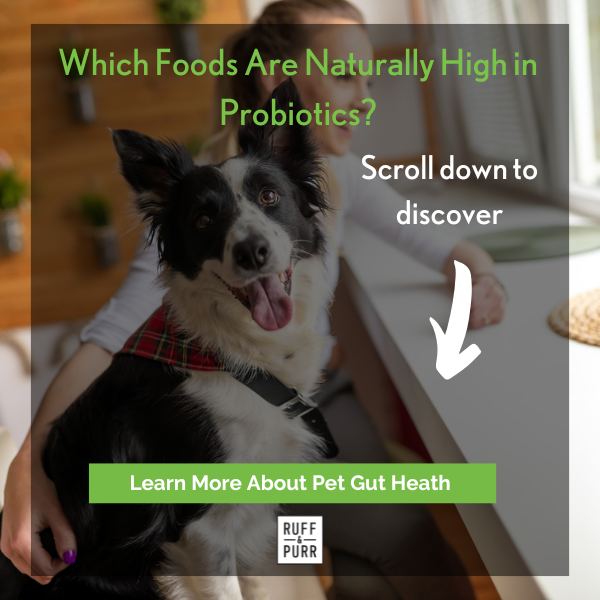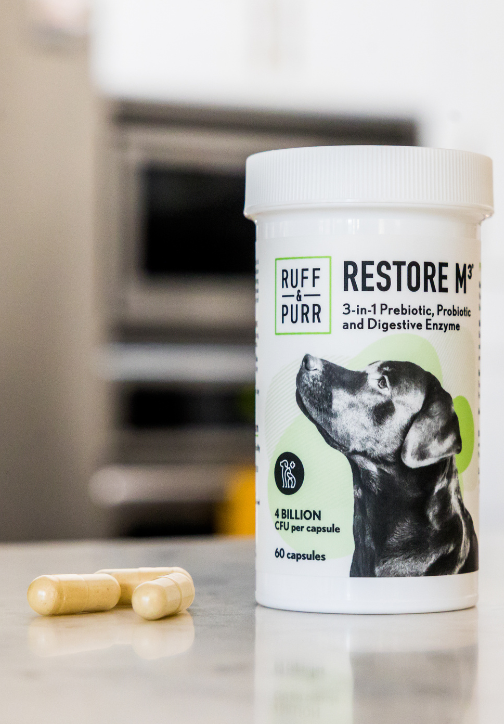Which probiotic foods are most appropriate and least appropriate for your pawed pal? Learn about which foods contain lactobacillus and which contain bacillus bacteria
͏ ͏ ͏ ͏ ͏ ͏ ͏ ͏ ͏ ͏ ͏ ͏ ͏ ͏ ͏ ͏ ͏ ͏ ͏ ͏ ͏ ͏ ͏ ͏ ͏ ͏ ͏ ͏ ͏ ͏ ͏ ͏ ͏ ͏ ͏ ͏ ͏ ͏ ͏ ͏ ͏ ͏ ͏ ͏ ͏ ͏ ͏ ͏ ͏ ͏ ͏ ͏ ͏ ͏ ͏ ͏ ͏ ͏ ͏ ͏ ͏ ͏ ͏ ͏ ͏ ͏ ͏ ͏ ͏ ͏ ͏ ͏ ͏ ͏ ͏ ͏ ͏ ͏ ͏ ͏ ͏ ͏ ͏ ͏ ͏ ͏ ͏ ͏ ͏ ͏ ͏ ͏ ͏ ͏ ͏ ͏ ͏ ͏ ͏ ͏ ͏ ͏ ͏ ͏ ͏ ͏ ͏ ͏ ͏ ͏ ͏ ͏ ͏ ͏ ͏ ͏ ͏ ͏ ͏ ͏ ͏ ͏ ͏ ͏ ͏ ͏ ͏ ͏ ͏ ͏ ͏ ͏ ͏ ͏ ͏ ͏ ͏ ͏ ͏ ͏ ͏ ͏ ͏ ͏ ͏ ͏ ͏ ͏ ͏ ͏

What Foods Are Rich in Probiotics?
|
|
|
|
Foods which are naturally rich in probiotics include fermented foods such as kimchi, sauerkraut, pickles, miso and natto as well as fermented dairy products such as yogurt, traditional buttermilk and raw cheese. Beverages such as kefir and kombucha are also considered fermented foods. When it comes to our pets, some of these fermented foods are more appropriate than others for a healthy probiotic treat.
|
|
|
|
Many people provide raw dairy such as raw goat's milk to their dogs for probiotics. This is a good option for puppies or underweight dogs, but not appropriate for full-grown dogs and especially not for overweight dogs. This is because of the extremely high fat content in dairy. High fat diets are not appropriate for dogs…†
Want to learn more? Click here to read our blog on this subject… |
|
|
|
A Convenient Source of Probiotics for Dogs
|
|
|
|
We formulated Restore M3® to go above and beyond when it comes to promoting a healthier microbiome by combining three key supplements: Probiotics, Prebiotics and Digestive Enzymes into one single-dose supplement to boost superior gut health and immunity. Yes, 3 supplements in only one capsule!
✓ Leaner, more muscular build ✓ Less paw licking ✓ Skin & coat improvements ✓ Cleaner teeth & fresher breath ✓ Fewer odors
✓ Great and consistent poops ✓ Vibrant, calm energy |
| |
|
|
Feel like changing the way you receive emails? |
|
|
|
|
|
|
|


No comments:
Post a Comment